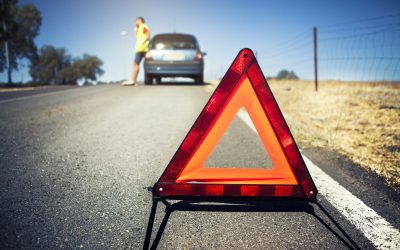
If your DUI accident involved someone’s death in California, you may face criminal charges for vehicular manslaughter or DUI murder. The prosecutor may blame everything that happened on you, and you have to be ready to defend yourself.
A Los Angeles DUI lawyer can provide more information about the possible charges you could face and help with your defense. You should understand each of these charges in detail and how they will affect your life. You should also know how to defend yourself in court for the least damaging outcome possible.
What Does DUI Death Mean?
A DUI death occurs when someone drives while impaired by alcohol and causes a fatal collision. California treats all drunk driving fatalities very seriously, so it’s essential that you contact a lawyer quickly after an arrest.
An attorney can review your situation, explain what happens if your DUI involves someone’s death, and get to work on your defense.
Charges for Fatal DUI Accidents in Los Angeles
When a DUI causes a death in California, the case becomes far more serious. The consequences are also steep. The prosecution could proceed with any of three possible charges:
Vehicular Manslaughter DUI in California
You may face charges under CA Penal Code 191.5(b) – Negligent Vehicular Manslaughter While Intoxicated after a fatal DUI. To be found guilty of vehicular manslaughter while intoxicated, the prosecution has to prove four things:
- That you drove under the influence
- That you broke some other law (such as speeding) in addition to your DUI
- That you acted with “negligence”
- That your negligence directly lead to someone’s death
Not every accident involving a death and drunk driving meets these criteria. For example, let’s say you had some drinks at a bar and drove home—obeying all other traffic laws. On the way, someone ran across the street in front of you without warning. You struck that individual, and they later died from the injury. This situation is not vehicular manslaughter DUI.
But let’s say you did break another law. It still might not count as DUI manslaughter unless you clearly acted with negligence. Negligence means you did something a reasonable person wouldn’t do that endangered someone else.
A DUI lawyer may build this defense for you. They may show that even though you drove drunk and someone died, you weren’t acting negligently in a way that directly caused their death. This argument can get your case knocked down from a DUI manslaughter to a regular DUI charge.
Gross Vehicular Manslaughter DUI in California
Gross vehicular manslaughter is identical to regular vehicular manslaughter except for two things:
- The prosecution must prove that you acted with “gross” negligence
- The courts always treat gross vehicular manslaughter while intoxicated as a felony.
“Gross” negligence is much more careless than ordinary negligence. It means you acted in a completely reckless way that anyone would know is potentially life-threatening. For example, speeding through stop lights or driving into oncoming traffic would count as gross negligence.
The sentences for gross vehicular manslaughter are more severe than regular vehicular manslaughter. Many regular vehicular manslaughter cases are misdemeanors—usually if it seems you didn’t mean to hurt anyone, if it was a first offense, or if you were not far over the legal limit.
But PC 191.5 (a) – Gross Vehicular Manslaughter While Intoxicated is a felony and carries much stiffer penalties. Penalties can include up to 10 years in prison. So, what if your DUI involved someone’s death? You could face extreme penalties.
California’s DUI Murder Law
The most serious DUI charge you can face is DUI murder. DUI murder implies that you set out driving drunk with a conscious disregard for human life.
What this means legally is murky. It does not mean you got behind the wheel of your car and said, “I’m going to go take a life.” It means that you got behind the wheel of your vehicle knowing that driving drunk is likely to take a life.
If you weren’t conscious of that fact while you drove drunk, the prosecution can’t convict you of DUI murder. Therefore, DUI murder is normally only charged when you have prior DUIs on your record.
California Provides Information About the Risks of Driving Impaired
The state of California makes all DUI convicts sign a statement (or verbally acknowledge) that they know driving drunk can cause death. That way, if you are later involved in another DUI and someone loses their life, the prosecutor can say you knew exactly what you were doing.
In practice, it’s not always that clear-cut. By definition, you were impaired when you got into the vehicle. It’s hard to say you were conscious of the risks that your actions posed. If you were too drunk to drive, you were probably too drunk to remember court documents from years earlier.
That’s why DUI murder charges are rare. Prosecutors usually only aim for DUI murder in the most blatant cases or when an individual has caused previous accidents driving drunk. The penalties for DUI murder include a minimum of 15 years in prison and possibly life in prison.
Your DUI Arrest Does Not Have to Ruin Your Life
All of these charges are serious. But, as much as you may fear the penalties, you should remember that the prosecutor is afraid of losing the case. Proving gross vehicular manslaughter is more complicated than proving regular vehicular manslaughter, and proving DUI murder is harder still.
They get worried if they see that you have an experienced, reputable DUI lawyer—and that you will fight tooth and nail. Therefore, the prosecution will sometimes downgrade even the most serious DUI cases to a lesser charge.
Get Help if Your DUI Involves Someone’s Death
What if your DUI involves someone’s death in Los Angeles? You can face harsh penalties if the court convicts you of vehicular manslaughter or DUI murder. Fortunately, you don’t have to face these charges alone.
Let us connect you with a Los Angeles DUI lawyer who knows how to handle cases involving death. We will provide you with a 100% FREE consultation. Just fill out our online contact form or call and get your free consultation today.






